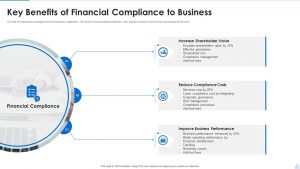
Key Financial Strategies for Entrepreneurs

Navigating the financial landscape as an entrepreneur requires a proactive and strategic approach. Understanding key financial strategies is crucial for securing funding, managing resources effectively, minimizing tax burdens, and ultimately, achieving long-term growth and wealth creation. This section Artikels practical steps and best practices to help entrepreneurs build a strong financial foundation for their ventures.
Securing Startup Funding
A well-defined plan is essential for securing funding. This involves several key steps, from developing a compelling business plan to effectively pitching to potential investors. The process is iterative and often requires persistence and adaptation.
- Develop a Comprehensive Business Plan: This document serves as the cornerstone of your funding request, outlining your business model, market analysis, financial projections, and management team. A robust business plan demonstrates your understanding of the market and your ability to execute your strategy.
- Identify Funding Sources: Explore various options, including bootstrapping (self-funding), angel investors, venture capital, small business loans (SBA loans), crowdfunding, and grants. Each source has specific requirements and expectations.
- Prepare a Compelling Pitch Deck: A concise and visually appealing presentation summarizing your business plan is vital for attracting investor attention. This should highlight key aspects of your business, including the problem you solve, your solution, market opportunity, and financial projections.
- Network and Build Relationships: Actively engage with potential investors and mentors within your industry. Networking events and online platforms can provide valuable connections.
- Negotiate and Secure Funding: Once you’ve identified potential investors, carefully negotiate the terms of the funding agreement, ensuring it aligns with your business goals and long-term vision.
Budgeting and Cash Flow Management
Effective budgeting and cash flow management are critical for the sustainability and growth of any business. Understanding your revenue streams and expenses, and proactively managing your cash flow, can prevent financial crises and ensure the long-term health of your company.
Creating a realistic budget involves meticulously forecasting revenue and expenses. This should include both fixed costs (rent, salaries) and variable costs (materials, marketing). Regularly monitoring actual performance against the budget allows for timely adjustments and proactive problem-solving. Effective cash flow management requires accurate forecasting of cash inflows and outflows, ensuring sufficient funds are available to meet obligations. Techniques such as accounts receivable management (prompt invoicing and follow-up) and accounts payable management (negotiating favorable payment terms) are crucial.
Minimizing Tax Liabilities
Tax planning is an integral part of financial management for entrepreneurs. Understanding tax laws and employing effective strategies can significantly reduce your tax burden, freeing up resources for reinvestment and growth.
Strategies include taking advantage of available deductions and credits, such as those for research and development, employee stock options, and qualified business income (QBI) deduction. Consulting with a tax professional is highly recommended to ensure compliance and optimize your tax strategy. Proper record-keeping is essential for accurate tax filings and audits.
Effective Investment Strategies
Long-term growth and wealth creation require strategic investments. Entrepreneurs should consider a diversified investment portfolio aligned with their risk tolerance and financial goals.
Examples include investing in stocks, bonds, real estate, and other alternative assets. Diversification reduces risk by spreading investments across different asset classes. Reinvesting profits back into the business can fuel growth, while strategic acquisitions can expand market share and profitability. Seeking advice from a financial advisor can help create a personalized investment plan that aligns with your individual circumstances and objectives.
For example, a young entrepreneur with a high-risk tolerance might invest a larger portion of their portfolio in growth stocks, while an older entrepreneur nearing retirement might prioritize income-generating investments with lower risk.

